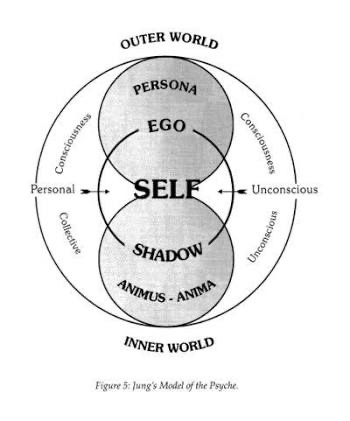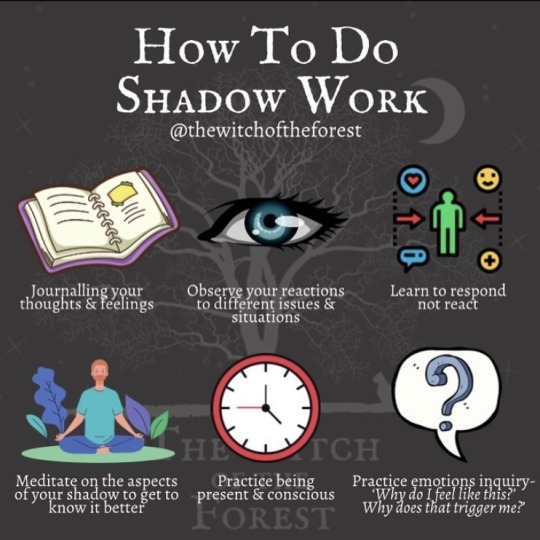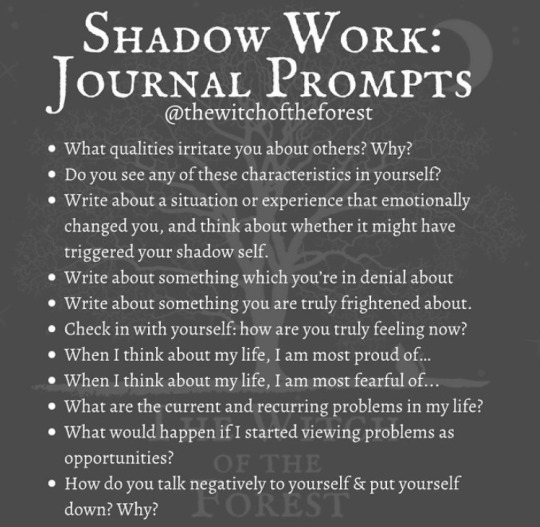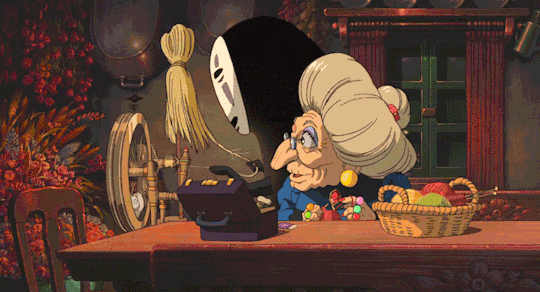Text

🌟 Magickal Paths: Look Beyond the "Dark" Practices! 🌟
As we approach the season of Yule, let's shed some light on the diverse paths available in the realm of magick. Often in esoteric communities, we see beginners gravitating towards seemingly "edgy" and complex magickal paths such as Black Magick, Dark Wicca, Norse Traditions, Hellenism, and working with Chaos and "dark" deities. This is not only due to their "danger" quotient but also because the internet is saturated with information about them. Sadly, practitioners speak far less of the vast diversity of magickal paths and traditions out there.
Many practitioners are quick to discard what is at their doorstep, shunning anything related to the Christian tradition. The assumption is that the Christian egregore is highly restrictive. And while there is some truth to this, it is not the whole truth.
There is something known as Cathedral Witchcraft, or Cathedral Magick. This is a tradition that embraces Christianity. In Cathedral Magick, one can work through prayer, chanting, the use of icons, holy water, myrrh, oils, and other sacred paraphernalia.
Its magick can at times be more potent than many other magickal paths or traditions. One can heal a person from illness, protect them, or return harm to the sender with the "wrath of God." The key is to observe the holidays and to treat the religion with reverence and respect. If one approaches it without respect and faith, then the downside of this tradition can manifest. The Christian egregore is vengeful and does not tolerate disrespect. One can experience guilt, ill health, or even have their life turned upside down as "punishment." This is why many practitioners move away from the Christian egregore.
But if a beginning practitioner has an affinity for Cathedral Magick, why must they move away from it?
Cathedral Magick also offers many tools for growth and self-discovery. For example, one can use the techniques of meditation and visualization to strengthen one's connection to the divine and find inner peace.
It is important to remember that every individual is unique, and the choice of magickal path should be based on one's personal beliefs and aspirations.
The main thing is to approach one's magickal path with awareness and respect for the traditions and practices of all cultures and religions.
3 notes
·
View notes
Text

I am reading a post about patronage and really, as I recall this "vague time" I remember that that’s why I left magical traditions, when I didn’t feel a single response and thought that there was simply no magic, that I am not heard and those who hear a little bit are "fucked up". In fact, it was necessary to get away from myself and go into a little oblivion.
And first of all, learn how to listen to yourself
Secondly, find that direction, which you are really attracted to. Not only based on general principles and "aesthetics" itself, but also based on your visions and dreams
At these moments, while you are "unprotected", demons and entities may confuse you
And after that you start to hear
And it can take years to do this
Vague time, when landmarks fell, a feeling of coldness and loneliness, a deep phase of depression, thoughts on death and the meaning of life (and it is not only thoughts, but also the death of relatives and parting with friends and the second half), disappointment in the practice and running away from your own forces, when you start to be afraid of your own abilities and try to ignore them, confusion in the directions and thoughts, why other people succeed, being in practice for a year or two, and you, being in the practice since birth, and not having such progress
0 notes
Text

Slavic New Year
Bright greetings to all! The most magical time of the year is approaching—New Year! For me, this holiday has always been a cozy time to sit with family, reflect on the past year, enjoy the hustle and bustle of home traditions, and make wishes for the upcoming year. That's why I would like to talk a little about this holiday and how the Slavs celebrated it.
For the Slavs, New Year was a time of transition from old to new, a kind of boundary between the past and the future. The celebration began on the evening of December 31 and continued until the morning of January 1. It was a period of purification of soul and body, farewell to old grievances, and the beginning of a new life.
The roots of New Year's celebration go deep into antiquity. In pagan times, the Slavs celebrated this day as the end of one agricultural cycle and the beginning of a new one. With the advent of Christianity, many customs were preserved, but acquired new meanings.
New Year was also a time for special rituals and customs!
On New Year's Eve, it was customary to conduct various rituals and ceremonies:
• Caroling. Young people went from house to house, singing carols, wishing the owners health, happiness, and well-being. For this, they were rewarded with sweets and coins.
• Mummers. People dressed up in costumes of animals and mythical creatures to ward off evil spirits and attract good luck.
• Cleansing fire. In the evening, a bonfire was lit, over which people jumped, cleansing themselves of the negative energy of the past year.
• Fortune-telling. Girls would tell fortunes on their betrothed, trying to know their fate in the new year. For this, candles, mirrors, grains, and other objects were used.
New Year's Eve itself was considered especially mystical. Our ancestors believed that at this time, the doors to the other world opened, and spirits could visit the living. Therefore, it was important to observe certain rules of conduct so as not to bring on trouble.
New Year's Eve was also called Vasilyev's Eve. It was dedicated to Saint Basil the Great, the patron of agriculture and cattle breeding. Special dishes were prepared on this day, such as kutia and uzvar, and family ceremonies were held.
What family traditions and customs do you have in your family? How do you prefer to celebrate New Year?
I would like to wish you peace and only pleasant chores in this New Year's Eve rush. I wish you all the brightest in the New Year! May this year be truly magical ✨
0 notes
Text

Hey there! In my last post, I only touched on some of the skills you'll need at the start of your journey. But there are plenty of other skills that can make your learning process easier as you dive into the world of magic and esotericism. ✨
First off, it's essential to learn how to feel the energy around you. Our world is filled with all kinds of energies, and these vibrations can be sensed from various sources. From the earth and soil during the spring awakening to the energy radiating from a photograph or a person, this "ability" will greatly simplify your life and practice early on. For example, feeling the vibrations from nature can guide you on when to perform certain rituals or when to recharge your own energy. Similarly, sensing a person's energy can give you insights about them even before you meet. This skill has helped me avoid some issues with people and alert my loved ones to potential dangers. To develop this ability, try meditation, concentration exercises, and spending time in nature.
Secondly, it's crucial to filter information. There are countless sources of knowledge around us, but not all of them are equally beneficial. Learn to distinguish truth from fiction and choose sources that align with your understanding and goals. Cultivate critical thinking and intuition to avoid mistakes and misconceptions.
Thirdly, keeping a practice journal or achievement log is a must. This helps you organize your experiences and track your progress. Writing down your successes and failures allows you to analyze what works and what doesn’t while preserving valuable ideas and insights. Over time, such a journal can become a treasure trove of wisdom and inspiration. Plus, it helps you remember important information for the future! I admit I sometimes struggle with this too, but I've learned to keep at least an online record.
Don’t be afraid of the new! The magical path is full of discoveries and unexpected twists. Don’t let the fear of the unknown hold you back from growing. Try new things, experiment, and step outside your comfort zone—this will open up new horizons of possibility.
And remember, every ritual has its consequences. Understanding the responsibility behind your actions and decisions is a crucial part of growing as a practitioner. Realizing that your actions impact the world around you will lead you to act more consciously and wisely.
0 notes
Text

My Magickal Journey: Embracing the Esoteric with Grace
Oh boy, what a wild ride it's been...
Many of you here know that I've been practicing magick for a very long time, and you have no idea how long. I don't usually talk about it because it may come across as boasting.
I've always been drawn to the extraordinary. I loved collecting minerals, which my mother often gifted me. I recorded my dreams, studied herbs, and learned to make medicinal tinctures with my great-grandmother, who took me on herb-gathering expeditions. I immersed myself in the mythology of Ancient Egypt and Greece, and had a passion for history. I turned to my loved ones in fear when I experienced strange dreams and visions, and they reassured me that everything was okay, "it's normal."
I've consciously been practicing magick since 2013, but it started subconsciously when I was a child, around the age of 2 or 3. That's when I first encountered the supernatural, but I'll share that story later.
It began with unusual dreams, unlike anything I'd experienced before. They were vivid, memorable, and filled with fantastical creatures. They felt so real, as if I could smell, touch, and even feel pain. Then, the visions started. I still remember the time I foresaw a car accident in a dream. I woke up terrified and ran to the kitchen, where the TV was always on. I saw the same cars, the same collision, as in my dream. That's when I realized I wasn't an ordinary child.
2 notes
·
View notes
Text

Personal Gain or Why I'm Afraid to Do Rituals for Myself
All my life, for some reason, whether it's movies or TV shows, conversations with elders or religion itself, I've been told that doing rituals for yourself, for your own benefit or gain, is a very bad thing. Why? Because it leads to consequences.
In "Charmed," which followed Wiccan tradition, if they cast spells for themselves, misfortunes would follow. Starting with light love spells and creating the perfect man, who later turned into a maniac, or even a ritual to improve their own sister's life. And it was alarming.
In that same religion, when you do something for yourself, it's considered selfishness, which means sin.
And recently, while watching some videos of witches, I heard that using magic for yourself is actually necessary. They say, "What kind of witch are you if you can't fix your own life and your life is 'imperfect'?"
Why, living our own lives, can't we make them a little better?
Doing rituals for yourself or for others is up to each individual.
What do you think?
#witchcraft#witchblr#spiritual community#spiritual#spirituality#higher self#self love#magic#witchery
2 notes
·
View notes
Text

Village Magic
Village magic is knitted socks, embroidery on linen shirts, pies, a cozy cottage on the edge of the woods, and a warm stove. It’s how I feel it.
Rooted in Slavic tradition, village magic represents a balance between the Christian egrégor and Slavic paganism. How did this happen? It all began with Princess Olga, the first ruler to embrace Christianity. By the 9th century, the coexistence of Varangian and Slavic paganism alongside Christianity was evident. As we know, we can blame Olga's grandson, Vladimir, for the Christianization of Russia.
By the end of the 10th century, three major religions dominated the world: Christianity, Islam, and Buddhism. However, Vladimir chose to follow in the footsteps of his great-grandmother, Princess Olga, and embraced Christianity. According to another version, ambassadors sent to different countries helped him make his choice: each shared what their religion had to offer, but it was Christianity that captivated him with its beauty (the only one where you could drink Cahors).
Yet, one cannot simply replace one religion with another. Yes, we can discard idols, drive everyone into rivers, and forcefully baptize. But unfortunately, we cannot rewrite minds. During the day, people would attend church services, while in the evenings they would offer tributes to household spirits and embroider protective charms on their shirts.
Village magic employs various methods for practice and work, primarily using structured spells. Some even rewrote spells “in a new way,” incorporating “amen,” and addresses to God and saints. Simple protective charms were made from materials at hand—usually wood, scraps of fabric, wool threads, animal teeth, and anything found in the forest.
There is an extensive knowledge base for working with herbs. Practitioners didn't shy away from dealing with spirits and demons. They continued to honor the same traditions of Slavic paganism. Village tradition is a unique balance. At that time (and for many years afterward), magic was condemned, and paganism was being eradicated. Therefore, village magic became a way to disguise and simplify practices as much as possible. No grand gestures or loud incantations—just whispers over herbs and water or spells for a broom while cleaning. A charm hidden in a needle tucked away in a doorframe was the only way to avoid being labeled a "witch" or "sorcerer."
#witchcraft#slavic magic#witchblr#slavic#spiritual community#folk magic#village magic#closed magic practice
23 notes
·
View notes
Text

The Altar in Slavic Tradition
Slavs did not have altars in their homes, nor was the concept of an altar present. They worshipped gods in groves (Eastern Slavs), shrines (Western Slavs), and among Southern Slavs, there were structures where offerings were left and deities addressed, with small figurines carved inside them.
It was also common to associate a deity with a specific tree. For example, Perun's cult associated him with oak trees.
Ideally, it is best to worship Slavic deities in forests, but if that’s not possible:
Acceptable on a Slavic Altar:
- Deity figure, made only from wood. Make sure male deities are not crafted from birch, while female ones should avoid being made from oak.
- Rushnyk (embroidered towel). Preferably linen or hemp, without embroidery unless you know its meaning.
- A wooden bowl for offerings.
- Beeswax candles, preferably infused with herbs.
- Items representing attributes of the deity can be placed on the altar. For instance, Makosh': spindle, threads.
Unacceptable:
- Tarot cards
- Paraffin candles
- Pictures of deities
- Stones
- Any unnecessary items or tools
6 notes
·
View notes
Text

TRADITIONS OF THE VELESIAN NIGHT AMONG THE SLAVS
We must remember that this is, first of all, a family holiday
The spirits of the ancestors return to their descendants to teach them lessons and bless the whole family. Before dark, a Fire was lit, jumping through which, as well as walking barefoot on hot coals, was a rite of purification and liberation from evil forces.
At night, at this time, a plate with treats for the souls of the dead is put out on the street. A candle is placed on the windowsill, it points (like a beacon) the way to souls who are ready to come to you and help. Apples, pumpkins, zucchini, and autumn flowers are placed on the Altar of the holiday. They remember their departed relatives, friends, and relatives, but without regret.
The days of commemoration of the ancestors were revered by the Slavs
Before the celebration, they cleaned the house, washed in the bath, where they left a bucket of clean water and a new broom for the souls of their ancestors. A festive table was set, where the owner of the house said a special word before the meal ("Grandfathers come, drink with us, eat ..."), and invited all the ancestors to dinner. All the doors in the house were opened so that the ancestors could come in and sit down at the table. Before starting the next dish, part of it was put on a special plate for perfumes.
The solemn memorial dinner lasted for quite a long time, everyone remembered the best in their deceased relatives, those deeds that more than one generation of this family can be proud of. During the festive dinner, it was allowed to talk only about the ancestors – their lives, individual cases and character traits, their words and instructions, wise advice and good deeds were recalled.
This conversation began with a story about the oldest and most famous ancestor, and ended with a memory of those who died very recently.
At the end of the celebration, the host saw off the Grandfathers with the words: "Goodbye Grandfathers, go... take troubles and illnesses with you, wait for us for a long time..."
23 notes
·
View notes
Text
Slavic “Samhain”
The Slavs, in the period from October 21-27, celebrated the Third Week, in which deceased relatives were commemorated.
On October 28, the Autumn Season began, when the Earth entered a period of rest and the water closed its palace until spring.
From October 31 to November 1, Veles Night was celebrated. According to popular beliefs, on this night, the souls of the ancestors visited their descendants living in Reality for the last time this year, after which they flew to the Bright Iriy until next spring.
From November 1 to November 7, the Great Autumn Svarozhye was coming, dedicated to Svarog, Koval of Heaven and the Father of the Bright Svarozhich Gods. At this time, Svarog was shackling the earth with ice for the coming winter

25 notes
·
View notes
Text

And here I am…
My thoughts have brought me to this social network to share to you the other side of magic and magical practice. There is so little information in the English-speaking world about Slavic magic, the world of the dead, astral travel, occultism, and other aspects of magic.
But I'm not here just for that. I want to expand my knowledge and understand different paths in magic. Perhaps I will find something I like…
Let’s find out. I will pop in here from time to time, even though I don’t write very well.
So, my name is Diana. And I am a witch.
2 notes
·
View notes
Text
Shadow Work
Origins, Meaning and Utility
The Structure of the Mind

Carl Jung theorized the existence of three levels/spheres in the human psyche: the Ego, representing the conscious mind, the Personal Unconscious where memories are contained and the Collective Unconscious, where all knowledge and experiences of the species are shared.
Each Sphere has in it a certain number of Archetypes, used to better describe the components of those structures, and the Shadow is one of them.
What is the Shadow

The shadow can be seen as a instinctual or primitive part of ourselves, it exists as part of the unconscious mind and is composed of repressed ideas, weaknesses, desires, instincts, and shortcomings.
It is this archetype that contains all of the things that are unacceptable not only to society, but also to one's own personal morals and values, normally going against social norms and rules as well as what we personally consider right.
The Shadow is often described as the darker side of the psyche, representing wildness, chaos, and the unknown, and it is common for people to deny this element of their own psyche and instead project it on to others.
The Shadow in Witchcraft and Benefits of Shadow Work

Art: Unknown
The Shadow, in witchcraft, can represent The Unknown, hidden depth of ourselves. Speaking in terms of energy, this is an area that can be a deep source of energetic issues, because it’s locked up in the dark and always striving to reach the light.
To not work with one’s Shadow is to make it greedy and aggressive, as well as denying a big part of oneself, making everything a half of a whole.
Through that brief explanation, we can already establish the importance and role of the Shadow in witchcraft, and with that in mind, comes the concept of Shadow Work.
Shadow Work can be seen in a number of practices, meditation, trances, inner journey’s, lucid dreaming, astral travels, spells and divination.
The method can change, but the principle is simple: Centering your intent to self discovery, self knowledge and self acceptance.
Working with one’s Shadow is not only beneficial to one’s craft, as it allows one to get in touch with their intuition as well as allows for easier connection with one’s guide/guides, but it also allows for healing and acceptance of one’s feelings and needs.
Think of all aspects of life as a wheel. If there is one part bent, the wheel can turn, but with more effort. If the owner spends time fixing that bent part, the wheel will turn in a much more smooth manner.
That is what happens when you take the time to do Shadow Work, you have to put in effort, and most of the time it’s not easy, but once done, all other components on the wheel of your life will be relieved to move on without that obstacle that makes their job harder.
The Shadow is not evil, as evil is just a moral compass invented by humans. It is a part of one’s nature, and to deny it is to supress a connection with yourself.
Take the time to know and accept your shadow, and you’ll see that life will be a little easier.
References:
A Natureza da psique (Structure & Dynamics of the Psyche) by C.G. Jung
The Archetypes and the Collective Unconscious by C.G. Jung
14K notes
·
View notes
Text
You Don't Need to do Shadow Work
Even though it is a good thing for your personal development. I don't think you NEED to do shadow work in your practice. Because of the sometimes heavy subject matter it's something you should WANT to do and know how to prepare for. And I do not trust other witches that say "you have to do your shadow work no matter what" because it assumes everyone can regardless of their situation and seems to erase people's mental health from the subject. That makes people like me feel so guilty and "less of a witch" because I simply wasn't ready. I hadn't fully learned how to take care of myself yet.
So here's the thing about shadow work.
Shadow work can bring back a lot of bad memories and shitty feelings so DON'T DO SHADOW WORK UNTIL YOU'VE LEARNT HOW TO TAKE CARE OF YOURSELF AND PRACTICED HEALTHY COPING MECHANISMS.
IF YOU ARE SOMEONE WHO GOES TO HARMFUL COPING MECHANISMS WHEN YOU'RE UNDER STRESS OR HAVE AN ADDICTIVE PERSONALITY PLEASE SEEK A PROFESSIONAL FIRST!
It's been nearly 4 years since I started officially practicing. I was a teenager when I started and I didn't know shit. After taking time to go to an actual therapist for my own mental illness, learn about myself and practicing healthy coping mechanisms I trust my intuition and now feel like I'm ready to start shadow work and since dedicating the process to Apollo his presence has turned it into a want rather than a need because I know I'm safe and he's supporting me.
TL.DR: DON'T DO SHADOW WORK UNTIL YOU'RE READY AND YOU 100% WANT TO!!!
922 notes
·
View notes
Text
Shadow work 🤍
@thewitchoftheforest on instagram
@thewitchoftheforest






6K notes
·
View notes
Text
An Actual "How To" for Dream Interpretation:
A post recently floated across my dash that I must admit struck a bit of nerve. This post was a self-proclaimed "How To" on recognizing certain dream symbols as well as overall dream interpretation, and though it got a few things right it unfortunately presented a few misconceptions as fact.
How did it do this? By providing a list of symbols and giving them one-dimensional definitions. By generalizing.
This is not Dream Interpretation.
If any of you are eager to learn this art (and if the notes on that post are any indication, there are at least a few) then I feel called to clear the air and make my own post on this in depth form of divination. Below are a list of things to keep in mind as you're starting:
. Dream Symbolism is a Language- When analyzing the various symbolism in a dream it does not do to separate the symbolism from the context of the dream. Yes, each symbol must be respectively translated- but it must be done while considering the dream as a whole message. Dreams are like poems. A single symbol is but one word and its full meaning cannot be felt without taking into account the full structure and prose of the piece.
. A Symbol is Not Yours Alone- Surely, it is important for each person to develop their own understanding of what is trying to be communicated to them through a dream. It is important to ask "what does this mean to me"? However, it also important to realize that our subconscious minds do not exist within a vacuum and that we, as humans, are constantly bombarded with images and visuals that have a shared meaning throughout our various cultures. In this way we are all a part of collective consciousness, and that consciousness manifests in our dreams. So, yes, while it is important to ask "what do these symbols mean to me?" it is just as important to ask "what do these symbols mean to others?"
. A Symbol isn't Always What it Seems- If you're dreaming about apples, it could be a symbol for a million things depending on the context in which these apples were presented: It could represent temptation. The pursuit of knowledge. Spiritual liberation. Sexual desire. Prosperity. Etc, etc, etc. It could be all of these things, or it could be none of them. Which brings us to…
. Sometimes a Symbol is Exactly What It Seems- Was your mother in your dream? Your father? Your childhood dog? These symbols could be representations of motherly instinct, patriarchal authority, or loyalty...or they could simply represent your mother, your father, or your dog. Once again, it is entirely reliant on context.
. Dreams Aren't Always Prophetic- In fact, in my experience, dreams are very rarely prophetic. If a dream is prophetic, there will be symbols to let you know as much. There will be a feeling in your bones. What makes dream interpretation a reliable form of divination, and a valuable source for spiritual knowledge, does not only lie in its ability to predict what will be- but to hold a magnifying glass up to what is. Dreams help to put into perspective the things we are experiencing in real time. Things that we may be suppressing, ignoring or outright taking for granted. Dreams, like tarot, tell us what we need to know and knowing the now is just as important as knowing the future. Maybe even more.
. Be Honest With Yourself- As a Dream Interpreter you come to realize that some people share their dreams in hopes that you will validate their hopes or fantasies. One must take special care to not take only the lessons they want to learn out of their dreams, or to twist the symbolism so that it confirms their hopes for outcomes, or obsessions, that are not possible or healthy. If you are honest while assessing your dreams, then you will be better able to acknowledge when symbols are born out of stress or anxiety or when metaphors are affirmations.
Lastly-
. Dreams are a Connection to the Supernatural- As stated priorly, it is important to be honest as it helps the interpreter better listen to their intuition. Intuition is not only important in understanding the symbols of your dream, but also in understanding whether certain encounters were symbolic or real. It is important to realize that the space in which dreams take place is a blurred line between the spiritual realm and our own and, within those spaces, we are able to see the beings that inhabit those realms more clearly than if we were awake.
34 notes
·
View notes
Text
Working with Spirits

In my last post, I talked about different types of spirits that witches may work with. Today, we’re going to discuss how to approach spirits and establish a working relationship.
Keep in mind that these are general guidelines, and every spirit is different. I encourage you to do your own research beyond this post, especially if you plan to work with powerful entities like deities, angels, or fairies.
Remember the Four R’s
It’s important to keep these things in mind when working with spirits:
Respect. The spirits are powerful, and you need to have a healthy respect for that power when working with them. It’s also important to respect them as individual, autonomous beings.
I’m not saying that every interaction you have with the spirits needs to be a full blown ritual with incense and chanting. (In fact, some spirits don’t care for those types of rituals.) But every interaction you have with them should be conducted with an air of respect and reverence.
What this mostly boils down to is good manners. Being polite will get you better results — and it will also keep you from being on the receiving end of spirit mischief. Proper etiquette depends on the type of spirit you’re working with, which is one reason it’s important to do your research. In general, it’s polite to make an offering, use respectful language, and thank the spirits before you leave (unless you’re dealing with fairies — some traditions say you should never thank the fae).
Respecting spirits also means respecting their desires — even if that means respecting their wish not to work with you. Not every spirit you reach out to will want to form a relationship with you, just like not every person you meet in your life will want to be your friend. When a spirit turns you down, respect their decision, politely bid them farewell, and move on.
Reciprocity. The goal of spirit work is to establish a mutually-beneficial partnership — not for one partner to serve the other. On one hand, this means that you can’t just command spirits to do your bidding without giving anything in return. On the other hand, it also means that you won’t be worshiping/honoring them without receiving some kind of boon.
This is why it’s important to make offerings to the spirits you work with. These offerings “feed” the spirits by giving them power, and a good offering will likely make a spirit more willing to work with you. Offerings are not payment for favors from spirits (it’s not quite that simple), but they are a sign that you intent to practice reciprocity in your relationship.
In general, it’s important to make an offering when you first introduce yourself to a spirit and again before you ask them for anything. But you shouldn’t only make offerings when you’re about to ask for something! How would you feel if you had a friend who only did nice things for you when they were about to ask for a favor? You’d probably start avoiding them, right? You might even get angry. To avoid this kind of dynamic in your spirit work, make regular offerings to the spirits you work with. If you’re especially close with a spirit, you may want to offer to them every day.
Relationship. The spirits are not vending machines where you put offerings in and blessings fall out. They are living, sentient beings with feelings, and deserve to be treated as such. Your relationship with the spirits you choose to work with is just that: a relationship. And like any relationship, it requires time, energy, and emotional labor.
If that sounds like more effort than you want to make, there are plenty of ways to do magic without ever working with spirits. You don’t need to do spirit work to be a witch. It may not be your thing, and that’s okay!
But if you choose to work with spirits, it’s important to remember that you are working with them as an equal partner — you’re not their boss, and they are not obligated to like you, help you, or even tolerate you. Relationships with spirits are built over time, through mutual respect and trust.
You wouldn’t drive up to your friend’s house, throw a fast-food burger at them, and then demand a special favor. Likewise, you shouldn’t just dump an offering on your altar and demand something of the spirits. Take the time to sit down with them. Talk to them. Get to know them. Put some thought into your offerings, instead of just offering the same thing every time. Spirit work is, at its core, about building an authentic relationship with the spirits we choose to include in our practice. Enjoy it.
Research. When it comes to spirits, it’s important to know exactly who (and what) you’re dealing with. As previously mentioned, the etiquette for dealing with fairies is very different from other land spirits. Different deities have different standards for their worshipers, which vary from one pantheon to the next. The way you interact with your ancestors will probably be shaped by their personalities, cultures, and values. All this is to say it’s important to know who you’re reaching out to, preferably before you reach out to them.
With deities, this is easy. Most witches who choose to work with deities will feel drawn to a certain pantheon, or even a specific god or goddess. There’s a lot of information out there about most historical pantheons, so researching them is easy. The same goes for angels, saints, demons, and even fairies.
It can be a little more difficult to do your research when you’re dealing with land spirits, spirits of place, or other less well-known figures. In these cases, it’s best to take three steps: 1.) figure out what type of spirit you’re dealing with (land spirit, animal spirit, ancestor, etc.), 2.) find out what this type of spirit is like generally, and 3.) find out how that applies to your specific spirit.
For example: you want to connect with your local land spirits. You do some research to find out how land spirits have been treated in various cultures — you find out that they’re typically benevolent, are closely tied to the natural landscape, and were often given food offerings. Then, you do some research into your local plants and animals — what form might a nature spirit take in your local environment? Would it be a huge moose with snow-covered antlers, or a magnolia tree in full bloom? Is there any local folklore in your area that could be describing a land spirit? Once you have answers to these questions, you’ll have a much better idea of how to approach the spirits and start up a relationship.

Initiating a Relationship with a Spirit
Begin by identifying who this spirit is. For example, let’s say you choose to reach out to a specific ancestor spirit — maybe a deceased grandparent. Make sure you’re familiar with the etiquette for interacting with this type of spirit so you don’t accidentally do something disrespectful. (If your Grandma hated cussing, try not to drop any f-bombs while communing with her.)
Create a special space to communicate with the spirit. This can be as simple as lighting a candle or as elaborate as setting up a special altar. If you’re reaching out to a grandparent, you might set up a small ritual space with a photo of them, any of their belongings that you have access to, and some things that they enjoyed while they were alive. These items may make the connection easier, but you don’t need them to communicate. What matters is that you’ve taken the time to create a special space for this moment. (Like all ritual spaces, it should be clean and tidy, and it’s a good idea to do an energetic cleanse beforehand.)
Make an offering. Make sure your offering is appropriate for the spirit you’re connecting to. Offerings should be made with an air of reverence — don’t just toss a bag of Doritos on your altar and expect it to be well-received.
Introduce yourself. Speak out loud. State your intention and who you are hoping to connect with.
Wait and listen. You may feel a presence or receive some kind of sign — or you may not. Just because you didn’t get a sign doesn’t mean that your offering wasn’t noticed or that you’re being ignored. You may also receive a sign several hours, days, or weeks after you first reach out. Be patient.
Say your farewells. Express your gratitude for the spirit’s presence, and let them know that you are ending your little ritual. It’s up to you whether to invite them to stick around or politely tell them to leave, but if you’re going to give a spirit permission to linger in your home you better be 1000% sure you know who they are and what their intentions with you are.
Moving Forward
As you work with this spirit, it is important to establish clear boundaries for the relationship. Be clear about what you want to accomplish by working with them, and make sure you understand what they expect from you in return.
You might want to establish a time limit: for example, maybe you’re choosing to work closely with the goddess Brigid from Imbolc to Samhain, at which point you can choose to continue the relationship or to take a step back. Or, you may choose to work with a spirit on a specific task — for example, working with the goddess Aphrodite to get back on your feet and rebuild your self esteem after a breakup. Once this task is accomplished, you may choose to form a more long-term relationship or to take a step back.
Forming a permanent or long-term working relationship with a spirit is a very big, very serious commitment, and should not be taken lightly. This goes double for anything involving a ritual commitment, such as dedication to a deity. When you make these commitments, you are choosing to make a spirit and their energy a permanent part of your life. This decision requires some very serious introspection and consideration, and should not be made impulsively.
Resources:
Southern Cunning: Folkloric Witchcraft in the American South by Aaron Oberon
A Practical Heathen’s Guide to Asatru by Patricia M. Lafayllve
Where the Hawthorn Grows and The Morrigan: Meeting the Great Queens by Morgan Daimler
Wicca for Beginners by Thea Sabin
Azrael Loves Chocolate, Michael’s A Jock: An Insider’s Guide to What Your Angels Are Really Like and The Angel Code by Chantel Lysette
New World Witchery podcast (several episodes, including “Episode 164 — Irish Folklore and Magic,” “Episode 161 — Practicing Safe Hex,” and “Episode 152 — Honoring Ancestors”)
6K notes
·
View notes